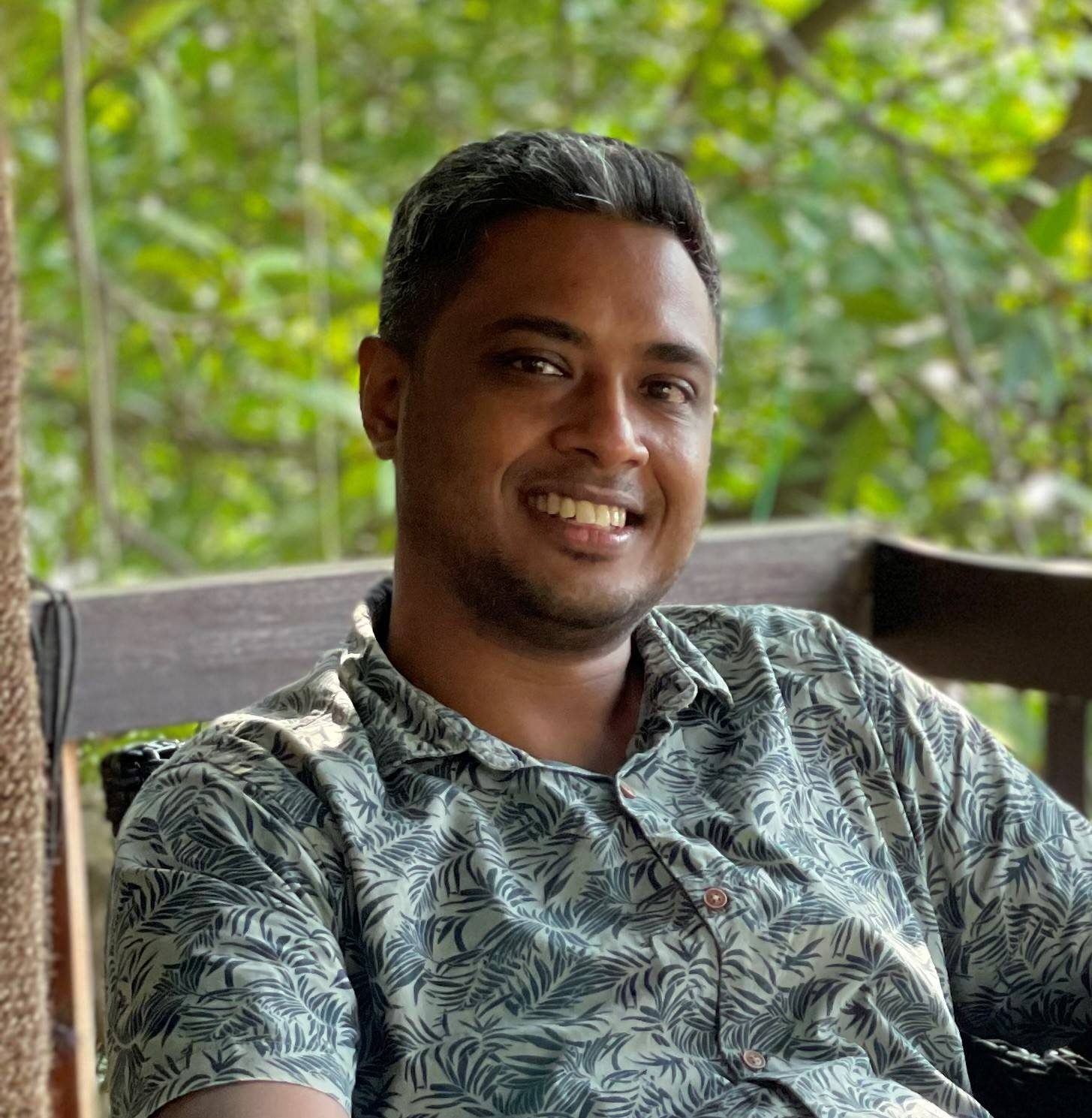
In Conversation
In our “In Conservation” segment this month, we chatted with Mr. Rishard Preena, Head of Sustainability Operations, Aitken Spence Hotels. Rishard is BSL’s focal point for Patron Member Aitken Spence Hotels.
BSL: Can you give us a brief introduction to your company & yourself
A: Aitken Spence Hotels operates a chain of 20 hotels and resorts in Sri Lanka, India, Oman, and the Maldives under three brands: Heritance Hotels and Resorts, Adaaran Resorts, and Turyaa. The portfolio includes 10 properties in Sri Lanka, five in Maldives, four in Oman, and one in India. Each of our unique properties caters to a diverse client base, having hotels suited to every need and budget while maintaining the high standards of hospitality that we are synonymous with.
Located in key tourist locations, the Aitken Spence chain boasts of exotic properties such as the award-winning eco-resort Heritance Kandalama which is situated in close proximity to two UNESCO world heritage sites, and the Desert Nights Camp in Oman, rated as one of the top ten desert retreats in the world. Our distinctive collection of hotels and our reputation for excellence make us a leader in the global hospitality industry.
As Head of Sustainability operations of Aitken Spence Hotels and being an engineer by training and qualification, I work on sustainability, renewable energy, process improvement, CSR, and project management.
BSL: What drives your sustainability agenda and what are the key focus areas?
A: Aitken Spence Hotels is a pioneer in the corporate sustainability movement in Sri Lanka. For us, sustainability is the fundamental practice of ensuring our operations can be sustained in the long term. As a member of a blue-chip conglomerate Aitken Spence PLC, our strategy entails operational priorities of all our subsidiaries under one policy framework to guide them on required action.
Accordingly, we have stipulated action points as ‘must do’ (essential action), ‘should do’ (where specific subsidiaries are expected to take action beyond the basics, based on the nature and scale of the impacts), and ‘could do’ (exemplary action to create differentiation for our businesses through sustainability). As a result of this strategy, we have several environmental management systems and a pool of more than 30 employees trained as internal auditors, Environmental Management Representatives, first-aid officers and fire wardens. Our company maintains over 20 diverse management systems certified under international benchmarks for environmental, quality, product responsibility and social sustainability.

Where else in the world can you stay in a converted tea factory, pluck your own tea and take it home with you as a souvenir? At 2km above sea level, the views over our lush green organic plantations as the sun mingles with the mist are truly unforgettable. Enjoy them as you tuck into high tea on the terrace or a delicious tea-themed menu in the restaurant. Welcome to Heritance Tea Factory, where the kettle is always on.
BSL: Give us an outline of your current sustainability initiatives/ Projects
A: At Aitken Spence Hotels, our efforts are ongoing. For example, we focus on reducing, recycling and reusing solid waste through our 7R initiative with the end goal of zero waste in landfill. We have successfully eliminated several single-use plastic waste streams over the last few years, and our objective is to keep improving.
Other examples include reducing the use of harmful chemicals, focusing on stringent standards on quality, environmental and health impacts and quantities used.
Conserving energy and water; Energy efficiency and use of renewable and alternate energies, such as Solar PV, replacing heavy fuel oils and diesel with Grilicidia / Cinnamon wood in biomass gasifiers and innovative technologies.
Improving our local employment (over 40% of associates are from immediate neighborhoods and villages in which we operate) and increasing opportunities offered to our female associates to enter management through training and skills development.
We also conduct localized programs for clean beaches, increasing green cover through tree planting and stewardship programs and coral growing and reef regeneration initiatives.
BSL: What do you consider are your company’s key achievements in sustainability domain and the reasons behind success?
- Heritance Kandalama – the first LEED certified hotel in the world and the first LEED building outside of the United States
- Heritance Aarah – the first LEED certified property in the Maldives
- The Heritance Hotels and Resorts and Adaaran Resorts chain of properties are certified Travelife Gold
- One of the first corporates to be signatories to the UNWTO Global Code of Ethics for tourism.
- Numerous awards and accolades for Sustainability and Green initiatives
With numerous international awards for high quality cuisine, service excellence, building conservation and environmental care being awarded, our hotels have been recognized as being among the top hotels in Sri Lanka. With over three decades in the hotels industry, our expertise in hotel design, building and management is complemented by our dedication and commitment to excellence in everything we offer. We are proud to be one of the most awarded hotels in Sri Lanka.
BSL: What are the challenges you fore-see in driving the Company’s sustainability agenda forward in the current, extremely volatile business context?
A: Shifting business practices to be more environmentally – friendly and sustainable can be expensive, at least in up-front costs, which makes businesses averse to making changes. It is relatively easy to calculate the savings from moving to renewable energy, but not all sustainability solutions are as straightforward. Changing an entire business supply chain to use more sustainable raw materials, is likely to require a costly initial investment even if it would pay off with time.
Holistically, however, we believe it is our sustainable business model that helped us manage our business during uncertain and unprecedented times in recent years. Therefore, it is key to understand and appreciate that while investment is required to maintain a company’s sustainability stance, the pay-off is in the long run and the stability it creates as a result of best practices in place.
BSL: Any interesting future plans?
A: Our future plans focus on resilience and adaptation, as all businesses must evolve. Whilst plans are many, we as a company believe in action before words. Therefore, we request you to follow us on our journey and be inspired by our passion and commitment.
BSL: Any message/s/ recommendation/s to BSL Members who aspire to be leaders in Corporate Sustainability?
- Move from being change-ready to change-driven
- Become conscious of your own values and purpose
- Empower and uplift each other – as corporates and individuals
- A strong sustainability culture requires transparency and honesty
- Be open to criticism as an opportunity for improvement
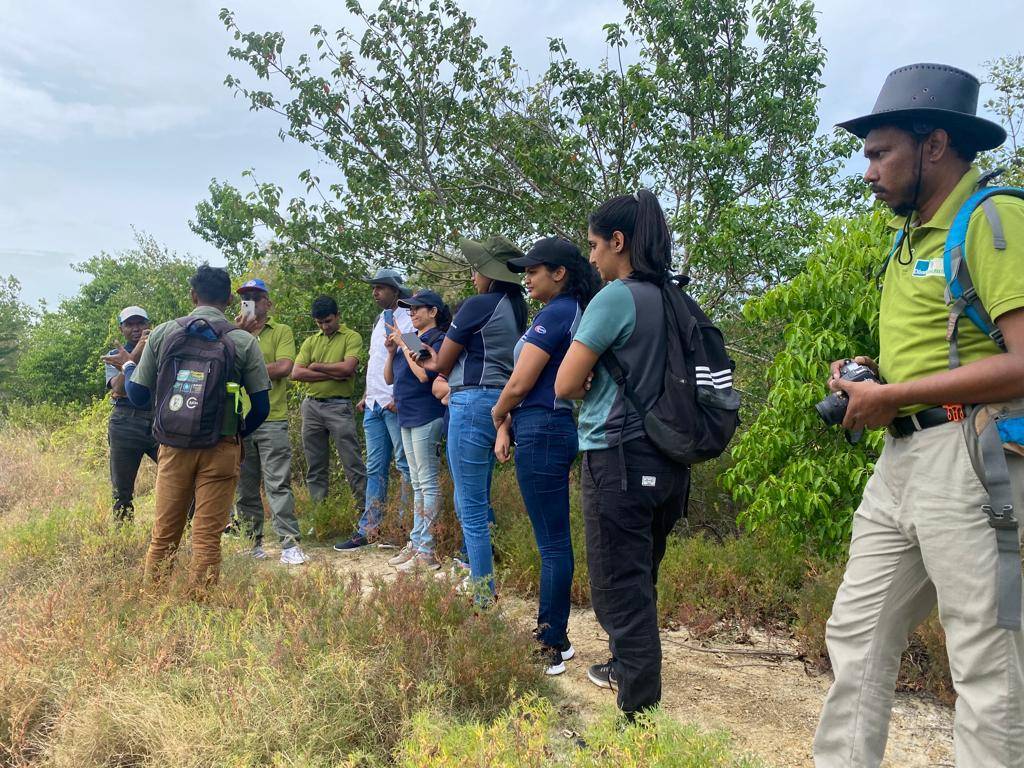
“Life to Our Mangroves” – A Partners led Effort
LIFE to Our Mangroves is one of BSL’s landmark multi-partner public-private partnership projects aiming to assist in restoring degraded mangrove patches located in the Anawilundawa Ramsar Wetland Sanctuary. The Anawilundawa Wetland Sanctuary spans over 1,397 hectares and is an amalgamation of forest wetlands like mangrove and freshwater swamps, coastal saltwater ecosystems, and freshwater lakes. It is one of Sri Lanka’s six designated Ramsar Sites.
The selected patches have become degraded due to intensive shrimp farming projects that took place over three decades ago. Led by the Department of Wildlife Conservation (DWC) and the Wayamba University (WUSL), the restoration activities are to be conducted using scientific principles, to enhance ecological functions, habitat quality, species diversity, and capacity to provide biodiversity and ecosystem services that are in close approximation to what prevailed before it was converted to the present state. Further, the project is expected to give a boost to the local economy by providing employment opportunities to adjacent communities as well as by local project purchases. In parallel to the restoration of this degraded wetland, BSL is in discussion with the DWC and the Sri Lanka Climate Fund is in the process of planning to assess and issue Carbon Credits to the partners.
BSL together with some of the project partners conducted a field visit to the site on 5th July 2022. The purpose of the visit was to hold discussions with the DWC personnel on-site, assess the field situation, and obtain practical insights on the status and planned activities. During this visit, the DWC Park Warden provided a detailed account of the site and its ongoing pilot mangrove restoration activities. He mentioned that for the current restoration effort a new mangrove restoration technique will be used which is based on the hydrological studies undertaken recently by the Sri Lanka Navy. The new plan for commencing restoration activities was presented to all stakeholders on 27th July 2022, by the DWC and the Wayamba University, co-coinciding with the International Day for the Conservation of the Mangrove Ecosystem. Phase 1 will commence with the plots closest to the Dutch Canal.
Project partners interacted with DWC officials by asking questions pertaining to the site, thus actively engaging in planned restoration activities. After this interactive session, the partners observed the land plots allocated to BSL for restoration activities. During the post-lunch question and answer session, DWC officials explained that the hydrological plans, prepared by the Sri Lankan Navy, will be a key element in the overall restoration approach. There will be a separate hydrological plan for each land plot. They further clarified that land plots closer to the Dutch Canal will be re-planted with true mangrove species and the plots which are located more landwards from the Dutch Canal will also carry mangrove associates and other terrestrial plant species. At the conclusion of the field visit, partners symbolically planted mangrove saplings/ propagules at the site.
Currently, BSL members Citizens Development Business Finance PLC, Dilmah Ceylon Tea Company PLC, Dole Lanka (Pvt.) Ltd., Dynawash Ltd., Eswaran Brothers Exports (Pvt.) Ltd., National Development Bank PLC, and Sampath Bank PLC are partnering with BSL in this restoration effort. More information on how you can engage in this Project can be had from: [email protected]
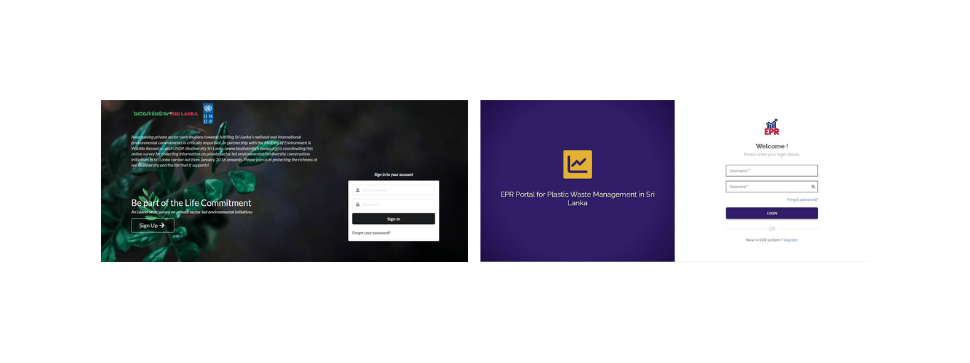
Patron Member Virtusa in support of Nationally Significant Sustainability Efforts
BSL’s Patron Member Virtusa stepped up in 2021, to design, establish and operationalize “Life Commitment” – BSL’s Online Reporting System for documenting private sector contributions on present and planned initiatives in biodiversity/environmental conservation. This effort is intended to provide much-needed information to the Government of Sri Lanka for successfully meeting the country’s national and international environmental commitments.
Denver Denver De Zylva – Vice President, Virtusa (Pvt.) Ltd.
This comprehensive data gathering repository currently online, has multiple uses – one of which is that the Government of Sri Lanka will be able to easily identify private sector contributions towards its multiple national and international commitments, including the National Biodiversity Strategic Action Plan (NBSAP), the Aichi Biodiversity Targets, the National Adaptation Plan (NAP) for Climate Change Impacts in Sri Lanka, the UN SDGs and the country’s commitments towards the Bonn Challenge. The survey also documents hitherto un-available financial investments made towards these initiatives over a determined period.
In the first phase, a comprehensive database of projects carried out by BSL’s members was established. Upon completion of this initial phase, Virtusa made the survey software foolproof by addressing technological issues that appeared during the initial deployment. Further, the survey platform was upgraded with visually appealing graphics to attract the wider private sector to submit their project information with the inclusion of online analytical tools for reporting.
Following closely on the heels of this successful initiative in 2022, Virtusa extended further technical support to the Ceylon Chamber of Commerce and Biodiversity Sri Lanka to design, establish and operationalize an online Plastic Waste Reporting System, the objective of which is to enable up to date reporting of plastic waste collection by corporates dealing with PET and HIPS and monitoring the fulfillment of their EPR commitments in terms of achieving national collect back targets. The reporting system will help regulatory authorities to assess the progress of the plastic waste collection of corporates dealing with plastic packaging at any given time. This reporting system is currently online and in use.
The support extended by Virtusa to these nationally significant efforts is a step in the right direction in the country’s sustainability journey.
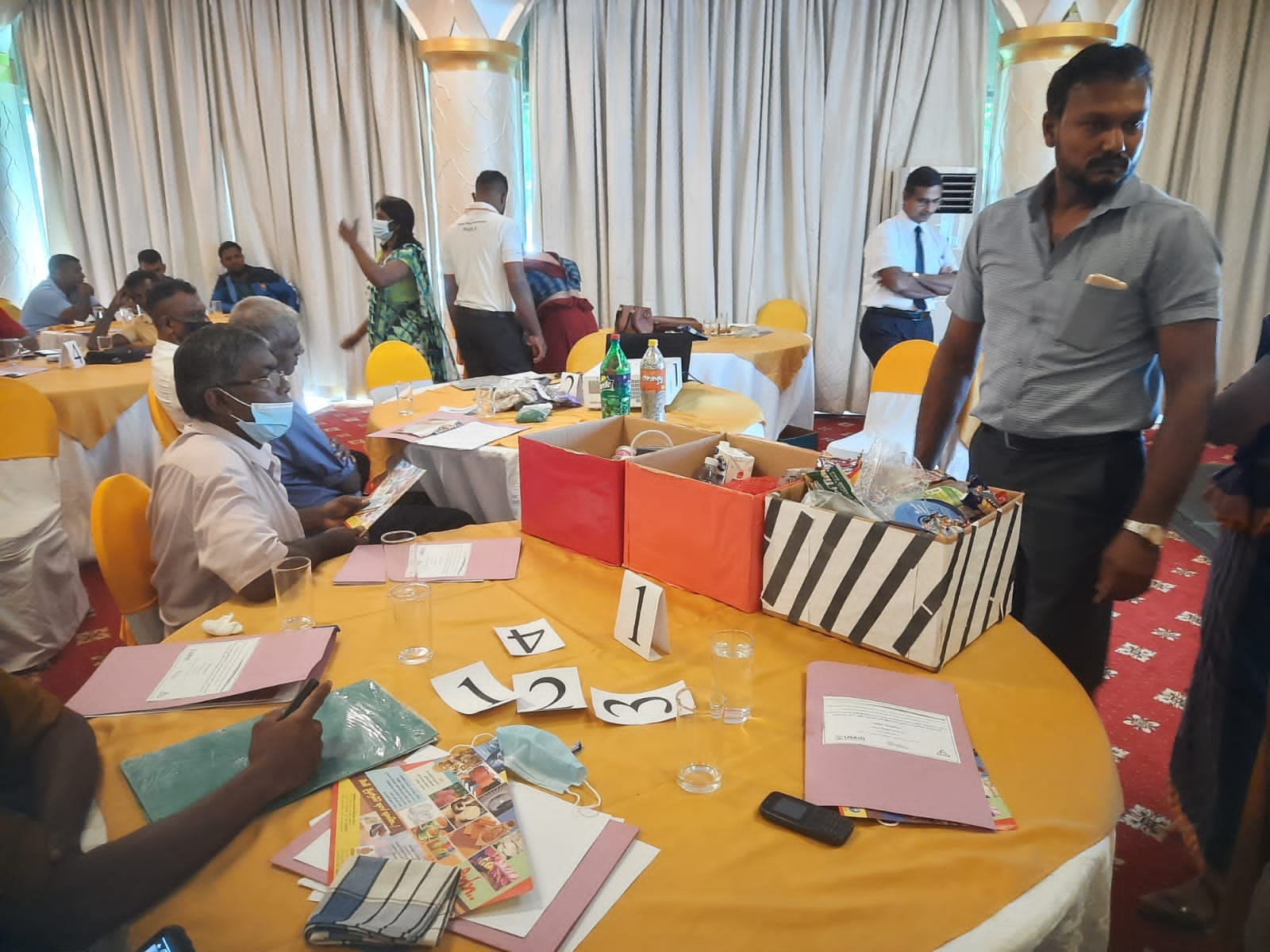
Waste Collectors & Recyclers in the Kalutara District Trained
With the aim of facilitating the implementation of the recently launched Extended Producer Responsibility (EPR)Model for Plastic Waste Management in the country, the Ceylon Chamber of Commerce (CCC) and Biodiversity Sri Lanka (BSL) in partnership with the Western Province Waste Management Authority (WPWMA) undertook a training program for waste collectors and recyclers in the Kalutara District on June 23, 2022, at Hotel Panaroma. This program was conducted under the capacity-building component of the USAID-supported project to implement an EPR system for plastic waste management in Sri Lanka. Thirty-three (33) collectors and recyclers participated in the program despite prevailing transport issues, which is a significant indication of the level of interest amongst collectors and recyclers.
Mr. Nalin Mannapperuma, Director/ CEO of the WPWMA conducted an introductory session on Solid Waste Management. A practical session on the identification of recyclable materials and various plastic types was conducted by Mr. R. M. N. Silva, Deputy Director (Technical) of the WPWMAy. The practical session was very interactive as collectors and recyclers were asked to identify various plastic types from a set of plastic articles in a box and to explain the processing method applied for each type. Mr. B. D. Taranga, Industrial Development officer, Industrial Development Authority, Western Province presented the financial facilities available for collectors and recyclers. He mentioned that if the country was not facing transport and other serious economic issues at the moment, they would have conducted a session with the participation of representatives from leading banks to register collectors/ recyclers for loan facilities.
A SWOT analysis was conducted to identify strengths, weaknesses, opportunities, and threats in the plastic waste collection sector through group work. Four (4) panelists including representatives from Project Teams, WMA, and Eco-Spindles provided expert inputs for the analysis. They also discussed potential ways of addressing some of the pressing issues, such as obtaining business registrations, and the poor recognition accorded to collectors.
The session titled “How to become an entrepreneur” was conducted by Mr. Priyankara Dissanayaka, Manager Sourcing, Eco-Spindles. In his presentation, he briefly touched on theoretical aspects of entrepreneurship and also provided examples of successful entrepreneurs with references to their traits and the challenges faced during their journeys. A session on leadership was conducted by Mr. Nimal Premathilake, who provided practical insights on leader mindsets which are essential for achieving challenging milestones.
As a follow-up action, the participants were requested to register with the WPWMA. In this regard, relevant application forms were distributed during the program. Overall, the participants expressed that they gained new knowledge and mentioned that they are looking forward to engaging more closely with WPWMA for matters pertaining to their operations. Mr. Roshan Salinda who attended the program representing the Project and BSL pointed out that it is important to prioritize some of the most critical issues faced by waste collectors/ recyclers and subsequently work towards addressing each of them collectively with a timeline for the benefit of the country. In conclusion, the WPWMA, stated that as the principal organization responsible for managing solid waste management affairs in the Western Province, will remain committed to resolve issues faced by collectors/ recyclers to uplift the waste collection/ recycling industry in the province.
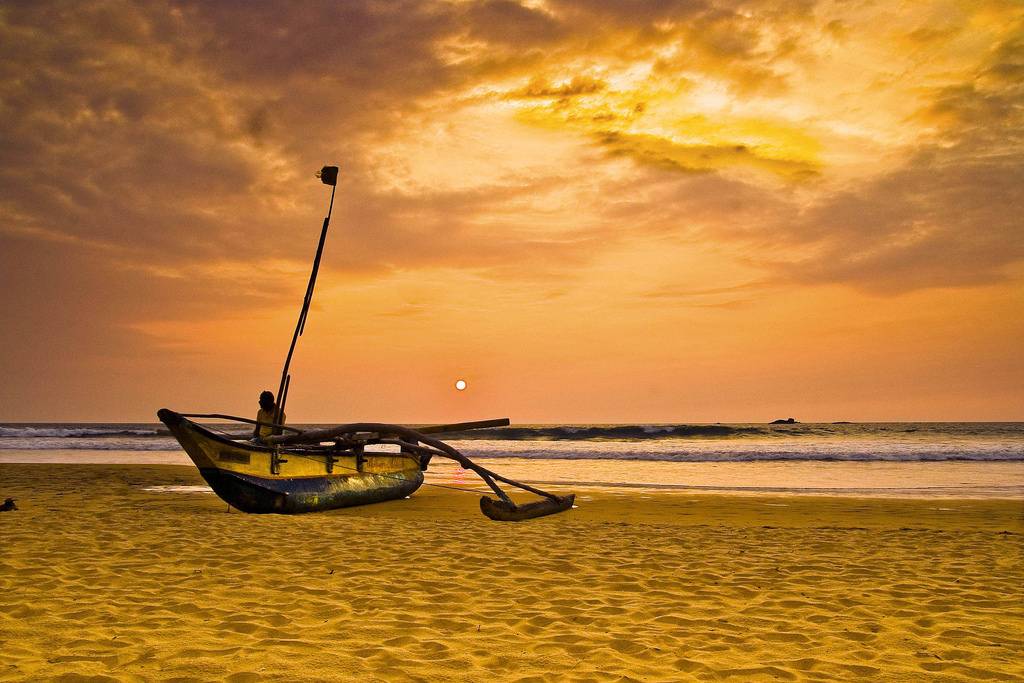
‘Life to Our Beaches’ partners with Samurdhi in Beach-caretaker training
Sri Lanka’s beaches are well-known worldwide for their elegance. The entire island is surrounded by beautiful coastal stretches of around 1,710 kilometers. Nevertheless, based on the anticipated volume of improperly handled garbage, Sri Lanka has been included among the top disposers of marine litter globally. (Meijer et al. 2021). Any persistent, manufactured, or processed solid material that is discarded, disposed of, or abandoned in the marine and coastal environment is referred to as marine litter. When plastic waste is not properly disposed of, it can enter the marine food chain, endangering the health and safety of coastal and marine species. Therefore, it is essential to take action to maintain our beaches safe, clean, and free of any risks so that visitors could relax and enjoy the beach stretches around the country.
The solid debris that washes up on our coasts frequently originates from both domestic and international sources. Rubber, plastic, glass, and aluminum-based materials are often collected from our beaches. These can be used wisely to create valuable resources through upcycling and recycling. To preserve a safer and more sustainable coastal environment for the benefit of all, immediate actions must be taken to ensure that our beaches are regularly inspected, cleaned, and managed responsibly. In this regard, in collaboration with the Marine Environment Protection Authority (MEPA), the Department of Samurdhi Development (DoSD), and member companies, BSL launched the programme called “Life to Our Beaches”. This programme has been designed as a Public-Private Partnerships (PPP), through which local communities also reap financial benefits by involving themselves in beach cleaning activities. They also derive an additional income by selling the recyclable waste collected.
With the participation of Patron Member DIMO, BSL operationalized a programme for the Dikovita beach stretch in Wattala. As the first step, BSL conducted technical training for the beach caretakers on collecting and identifying various types of plastics and other marine litter in the identified Dicovita stretch. The main objective of the training was to equip the beach caretakers with the necessary knowledge to identify the common types of plastic waste materials using an identification number. The 7 different kinds of plastics namely PET, HDPE, PVC, LDPE, PP, PS, and other plastic types were listed in order from 1 to 7. The packaging items and plastic bottles were utilized to demonstrate the common use of those plastic types.
The value of working as beach caretakers was recognized in the training program. It is a crucial service that helps in protecting the country’s stunning beaches. They were also made aware of the value of the trash they were collecting from the beaches and how they might sell it to supplement their family’s income. During the session, it was emphasized the need of taking health and safety measures when picking up rubbish on beaches. They were advised to keep records of the monthly collection in terms of the type of waste materials for monitoring purposes.
The project will continuously monitor the progress of beach cleaning activities and support the recyclable waste collected towards composting, recycling, and safe disposal. The Beach Caretaker Program is a breakthrough local conservation effort that inspires communities to act to protect their environment from coastal pollution whilst leading to socioeconomic gains. The Beach caretaker program is a powerful illustration of how community-led conservation programs can create a significant positive impact and alter the bleak future of the planet. They also serve as a reminder that every action, no matter how small, can have a rippling effect.
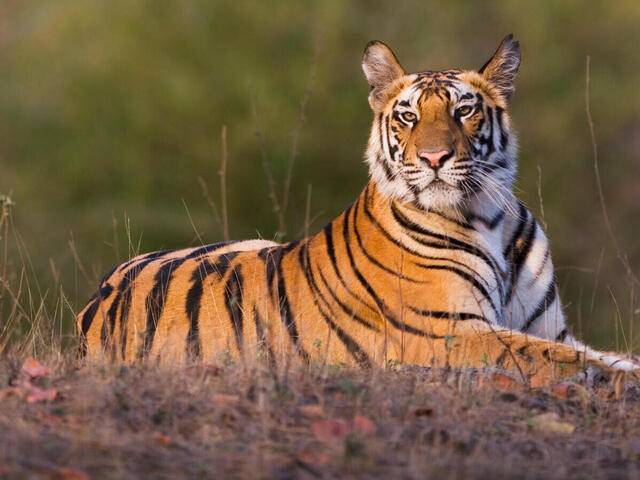
It’s Good News! A potential comeback for the big cat in the Year of the Tiger
Picture credits: World Wildlife Fund
In a tremendous turning point for a species on the brink of extinction, the global tiger population has stabilized and potentially increased, according to the latest International Union for Conservation of Nature’s (IUCN) Red List of Threatened Species Assessment, led by Panthera, the global wild cat conservation organization. New data suggests a potential 40% increase in tiger numbers, from 3,200 in 2015 to 4,500 in 2022, despite extreme threats. Signaling a potential comeback for the big cat in the Year of the Tiger, this represents the first potential climb in the species’ numbers in decades.
Panthera Chief Scientist and Tiger Program Director, Dr. John Goodrich, stated, “While a monumental amount of protection and funding are still needed before proclaiming ‘mission accomplished,’ these numbers signal previously incomprehensible stability in the global tiger population, and even increases in some protected areas. This is nothing short of a watershed moment in the history of the species, made even more remarkable given the overwhelming threats tigers face at every turn.”

Mother tiger (T-19 Krishna) & cubs in Ranthambhore national park, India.
Picture credits: World Wildlife Fund
Goodrich continued, “Protected area population increases in India, Nepal, and Thailand are particularly encouraging as they demonstrate that the recipe for saving tigers can be tailored and replicated across the species’ range. If progress continues as it has in the last decade, I fully expect tigers to be reclassified as ‘Vulnerable’ by the next IUCN Red List Assessment in seven to ten years.”
The IUCN’s latest assessment estimates between 3,726 – 5,578 wild tigers remain in Asia, with an average of 4,500 individuals; 3,140 of the 4,500 are estimated to be adult tigers. Representing 76% of the global tiger population, South Asia’s tigers are gaining numbers, particularly in India and Nepal from where new population estimates are expected any day. In Northeast Asia, numbers are relatively stable in Russia and likely increasing along the border with China. Of all regions, however, Southeast Asia’s tigers are faring the worst, with tigers having been lost from Cambodia, Lao PDR, and Vietnam since the turn of the century.
Panthera scientists cautioned that although new data suggest more tigers exist in the wild than previously estimated, this is partly due to improvements in or a more complete counting of the species, which has made population comparisons over time unreliable. As recently as 15 years ago, scientists were forced to make educated guesses about tiger numbers, but with the invention of and subsequent advances in camera trap technology, genetic testing, data modeling, government collaboration, and more, rangers tracking tigers have vastly improved monitoring efforts.
Inconsistent monitoring methods by tiger range states have produced false positive population increases as well. Previous IUCN assessments, including that led by Panthera, have also incorporated highly conservative population estimates or underestimates, nearly guaranteeing increases in future tiger population estimates. Still, the 2022 IUCN Assessment is now the most reliable and scientifically sound estimate of tigers ever conducted and serves as the first reasonable baseline against which scientists can measure future changes in the global tiger population.













